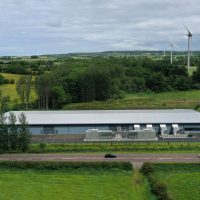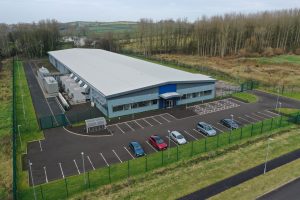
An increasing number of businesses are shifting their operations from in-house server rooms to colocation or data centre facilities. Colocation is the practice of housing privately-owned servers and networking equipment in a third-party data centre. It gives a business the opportunity to house servers on a site that provides the infrastructure and physical security to keep its deployment secure and operational all year round. The list of benefits involved with data centre colocation is an extensive one, but here are the top five…
1. It frees up budget to invest in business growth
Colocation drives cost down while maximising a business’ potential. An organisation is doing more than renting space, it is gaining access to staff and state-of-the-art infrastructure that allows it to manage its data without having to leave the office.
Housing severs at a third-party site means reducing costs and allowing internal IT staff to focus on important business operations.
2. There is endless scalability
Colocation space, power, bandwidth and connection speeds can all be increased when required, to ensure that businesses of all sizes can be catered to.
The aisle-containment structures, or ‘racks’, also reduce operating costs. They are easily expandable, meaning businesses can pay for as little or as much as they need.
3. It enables 24/7 security
Data centres continually upgrade their facilities to ensure all data is protected and secure through monitoring, physical-attack prevention, and fire detection and control.
Quality colocation providers house your servers in secure data centres, with security measures that include; closed circuit cameras, on-site security, coded access, biometric scanners, and alarm systems, to name a few.
With colocation, you don’t have to hire or purchase any of these security measures yourself – it is all included in your service plan.
4. It allows businesses to stay connected at all times
Colocation providers keep your servers in a climate-controlled environment with high bandwidth speed.
They have fully redundant network connections, which ensures that a business’ critical applications always run uninterrupted.
5. Staff are always available
Servers require a vast amount of infrastructure, such as power, cooling, connectivity, and security. Managing all of these elements requires a significant amount of manpower at all times of the day.
Not many businesses have a team of people available 24/7 to re-boot servers if they fail at 4am.
If this were to happen, colocation providers have the means to get businesses up and running within hours.



